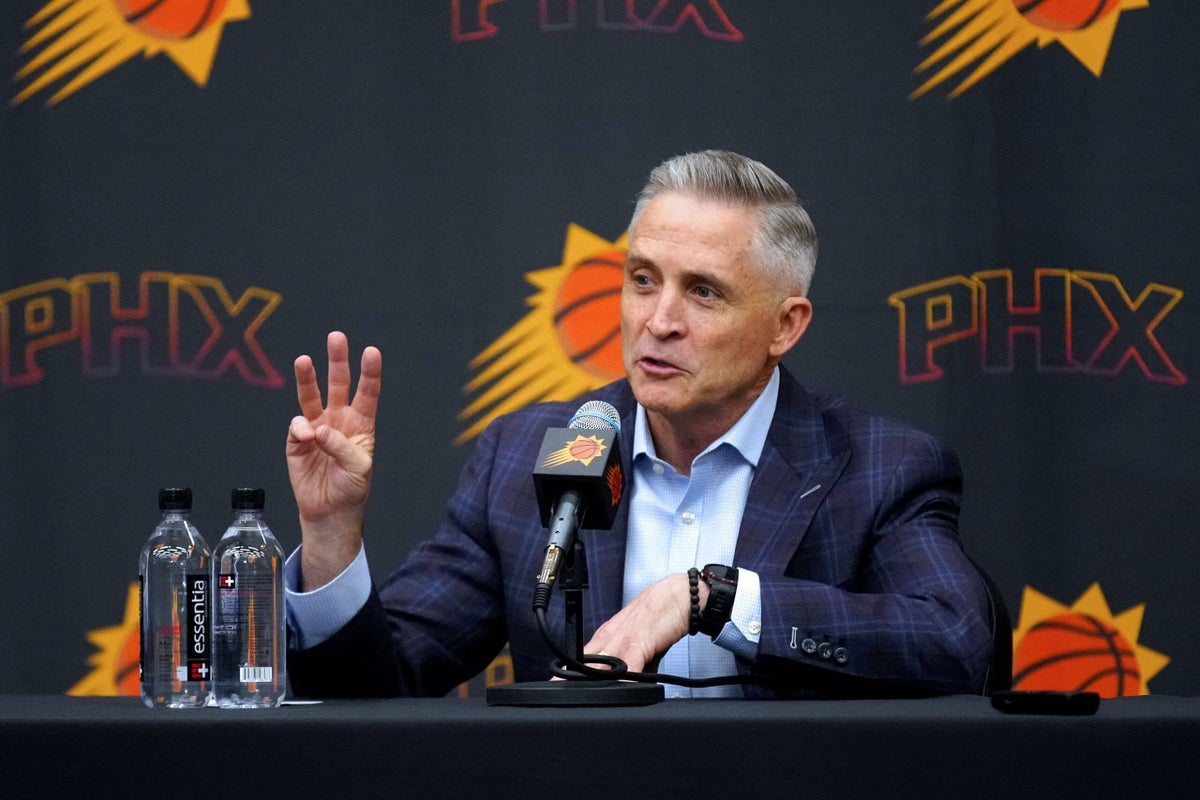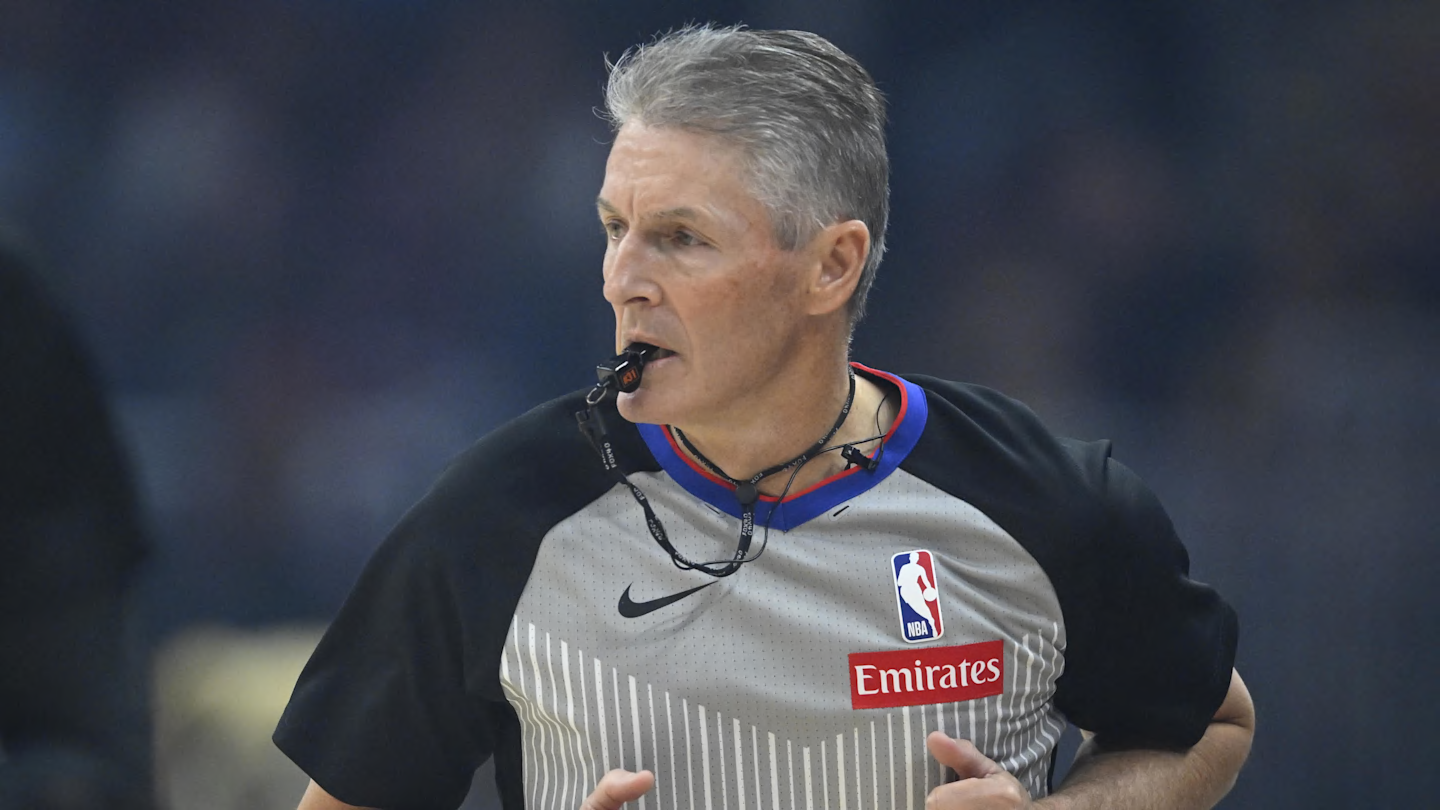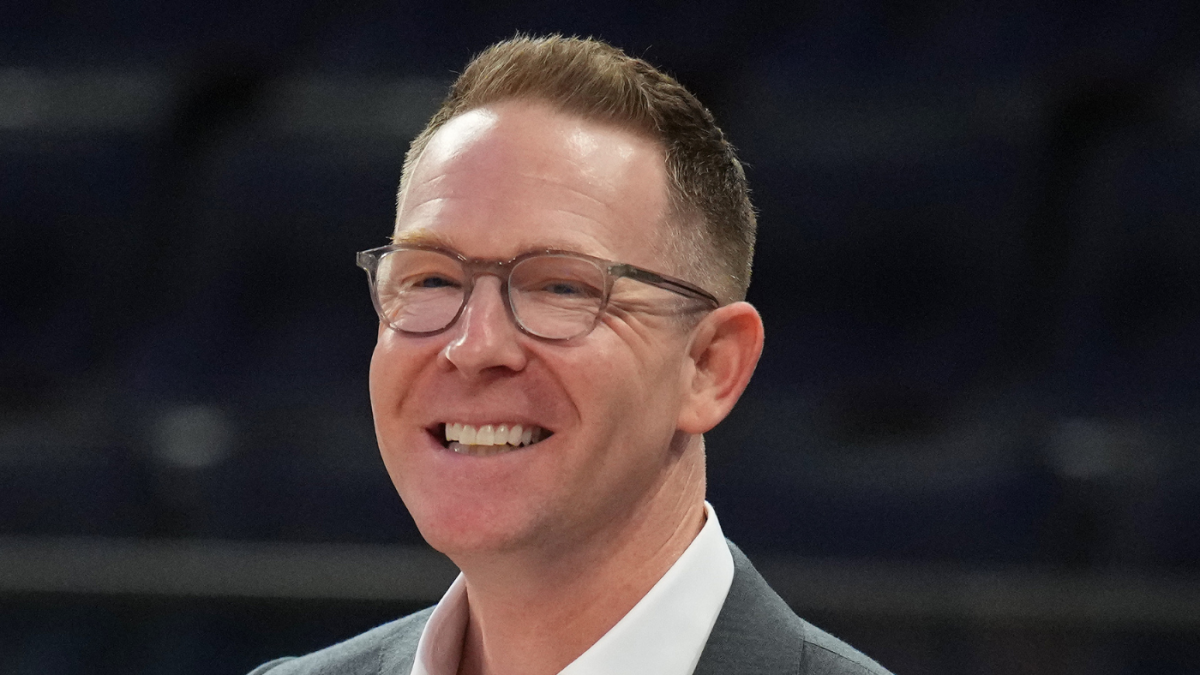PHOENIX — As a player, Brian Gregory was a point guard who could see plays before they developed. Even today, his coach at Oakland University calls him the most cerebral player he’s had in 40-plus years. Gregory understood basketball in a unique way and finished as the school’s career leader in assists.
Advertisement
As a college coach, Gregory was similar. Those who have worked with him describe him as hard-working, organized, grinding, meticulous, incredibly hard-working, dedicated, passionate, authentic and thorough. One assistant even had a nickname for him: “The fixer.” Because Gregory knew how to rebuild bottomed-out programs.
At a Phoenix Suns news conference Tuesday, Gregory leaned into that experience, even though he has spent little time in the NBA. After Phoenix failed to make the postseason, owner Mat Ishbia this month promoted Gregory to general manager, raising eyes around the league, charging him with changing the organization’s identity.
“The knowledge and experience, I think, put me in a good position to be successful in this role,” Gregory said at the team’s practice facility. “But I think the thing that’s going to separate me and give me the opportunity to make a positive impact is my focus on building that identity and creating that alignment.”
The Suns are in a difficult spot. Four years after playing in the NBA Finals, they finished with a losing record, embarrassed and shut out of the Play-In Tournament. They need to make major roster moves but are handcuffed by their position above the second tax apron, a salary threshold that limits how high-spending teams can maneuver. With ownership content to build around star Devin Booker, trading Kevin Durant is a strong possibility.
The person leading this effort worked with the Suns two years ago as a consultant. Phoenix officially added him to the front office last June as vice president of player programming. On Tuesday, Gregory called the past two years a “masterclass” in NBA management, allowing him to assist several branches of the organization.
“When we talk about that, that identity, and we talk about the toughness that you have to play with, the unselfishness that you have to play with, the grit that you have to play with…That’s what we need to be.”
🗣️ General Manager Brian Gregory pic.twitter.com/Fsz2IZOhm5
— Phoenix Suns (@Suns) May 6, 2025
For over 30 minutes, the 58-year-old from the Chicago suburbs came across as grateful and determined. He acknowledged that his relationship with Ishbia, which began at Michigan State where Ishbia was a walk-on guard and Gregory was an assistant coach, played a role in his GM promotion. He said he welcomed the owner’s involvement.
Advertisement
More than anything, Gregory expressed the importance of alignment, a popular buzzword for an organization in transition. If Gregory didn’t want to answer a question — such as the importance of getting under the second tax apron — he often transitioned back to alignment, something Ishbia felt the Suns have lacked.
This will be scrutinized. Since assuming controlling interest in the Suns in February 2023, Ishbia has been accused of heavy-handed management. He had previously made basketball decisions with CEO Josh Bartelstein and then-GM James Jones. With Gregory’s promotion, Jones has shifted to an advisory role. Gregory said Tuesday that Bartelstein would continue to be involved in “every single aspect” of basketball operations, which might lead some to wonder if anything has changed.
Gregory’s first task will be hiring a head coach, Phoenix’s fourth in as many seasons. Ishbia fired Monty Williams after the Suns lost in the 2023 Western Conference semifinals. He fired Frank Vogel in 2024 and Mike Budenholzer last month. Gregory did not offer a timetable but acknowledged that hiring a head coach is a critical move for the direction of the franchise. He added that every move will be an aligned decision.
Before Tuesday’s news conference, The Athletic talked with coaches, players and administrators who have worked with Gregory. They described a coach who built programs with defense, toughness and rebounding, principles learned while Gregory worked two stints as an assistant coach under Tom Izzo at Michigan State.
Chad Dollar, the assistant who calls Gregory “The Fixer,” said Gregory was among the most organized coaches he’s seen. Dollar worked with Gregory at Georgia Tech and South Florida and said that Gregory had defined roles for every staff member at each place. And while neither school made the NCAA Tournament under Gregory’s watch, Dollar said the former head coach didn’t get enough credit for the foundations he built.
Advertisement
“We would have daily meetings so we could understand what we were doing, what our assignment was, whether it was with recruiting, whether it was with academics, dealing with social media, dealing with alumni,” he said. “Whatever it was, he made sure that everybody was on task and everybody knew exactly what direction the ship was going.”

Brian Gregory’s most successful coaching stint came at Dayton, where he led the Flyers to two NCAA Tournaments and three NITs in eight seasons. (Nick Laham / Getty Images)
Gregory was in the college game for 33 years. His best work came at the University of Dayton, where he led the Flyers to two NCAA Tournaments and an NIT title.
Later, Gregory spent time with the Utah Jazz during NBA Summer League, just observing. Once he started consulting for the Suns, word started to spread that maybe Gregory had found his next basketball chapter.
Oakland University coach Greg Kampe, who coached Gregory in college, ran into former Phoenix star Rex Chapman, who works for the Suns, in a restaurant during the 2024 Final Four. He said Chapman told him that Gregory had started to make his mark. University of Utah athletic director Mark Harlan, who had hired Gregory at South Florida, said he wondered if the former coach had found a second calling. Knowing Gregory’s values and work ethic, Harlan had a hunch this might lead to something bigger.
This year, Miami athletic director Dan Radakovich, who hired Gregory at Georgia Tech, visited with his former coach before a Duke-Miami game. Gregory was there to scout.
“I think after a while, coaches have shelf lives,” Radakovich said. “And I think Brian had gotten there, but certainly the world of basketball understood his talent and was not going to let somebody with that background and pedigree just sit on the sidelines.”
And at the same time: “This is going to be a really interesting deal because he’s not blowing the whistle,” he said.
Will Gregory’s inexperience matter?
In the late 1990s, Kevin O’Neill talked with Izzo shortly after O’Neill had been hired as head coach at Northwestern. Izzo told him that if he needed an assistant coach, he should talk to Gregory. O’Neill thought so much of Izzo, he said he’d hire Gregory, no conversation needed. O’Neill then realized why Izzo liked Gregory so much. He was smart. And no one worked harder.
Advertisement
This week, O’Neill, who also coached in the NBA, was asked about the importance of experience.
“You know,” he said, “when I get on an airplane, I don’t want to see some 25-year-old flying the plane. I look for a little gray hair and a guy that’s got a little bit of a belly because I think he can figure it out if we’re in trouble.
“But (this is) a different business. Brian will learn. He’ll make some mistakes. Everybody does. But if anybody can learn on the fly, it will be him. I believe that.”
Gregory on Tuesday didn’t promise much, but he said he hopes fans next season notice a difference.
As they leave PHX Arena, he’d like to hear them talk about a new identity. Man, that team plays hard. Did you see the second and third efforts? Every loose ball, that team was on the floor. That’s the identity he seeks.
“We’re going to think differently,” Gregory said. “We’re going to be unified in our approach on a daily basis. The results are going to speak for themselves.”
(Top photo: Patrick Breen / The Republic / USA Today Network via Imagn Images)


